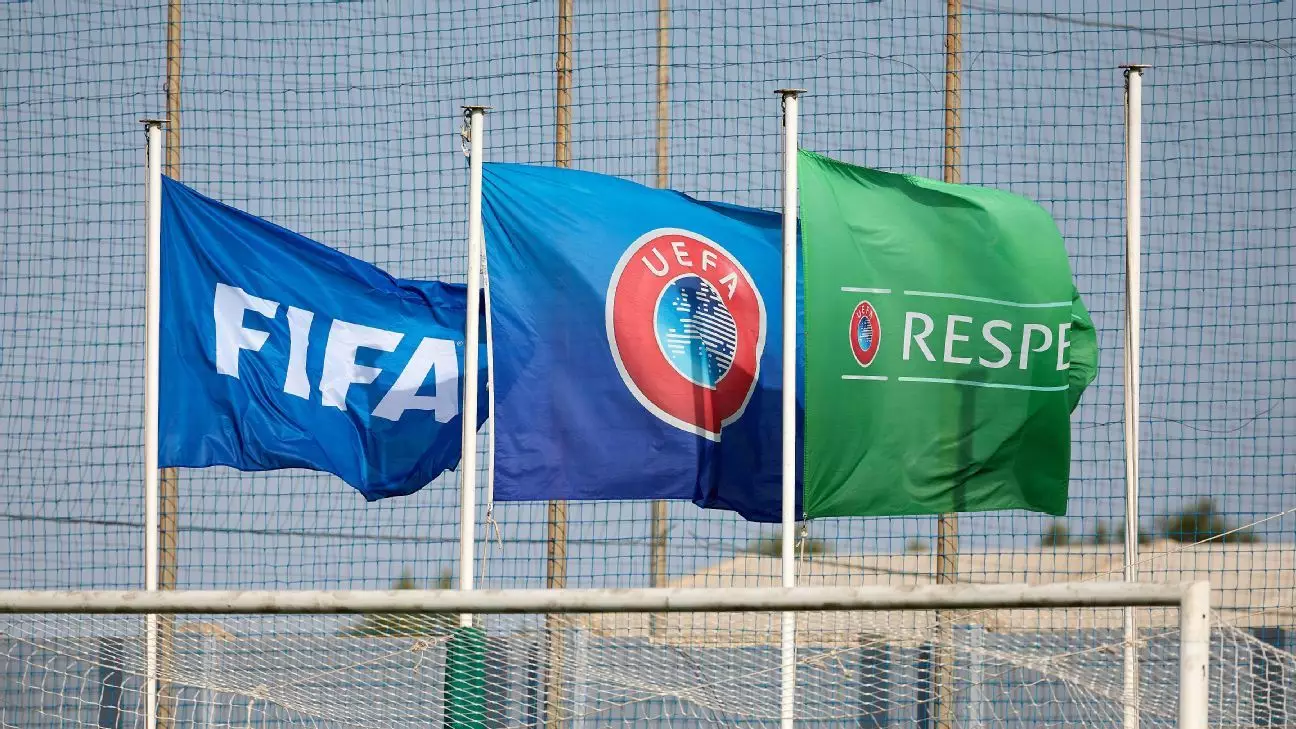A22 Sports, the driving force behind the controversial Super League initiative, has resurfaced with renewed vigor in its ambition to launch a new European football competition. On Tuesday, the company officially submitted a proposal to UEFA and FIFA, requesting their acknowledgment to organize this innovative league, now dubbed the “Unify League.” This resurgence comes on the heels of a significant ruling from the European Court of Justice (ECJ) in December 2023, which criticized UEFA and FIFA for allegedly abusing their dominant position in the realm of football governance. This judicial decision forms a critical backdrop, highlighting tensions between established entities and emerging competitive frameworks within European football.
The ECJ ruling identified UEFA’s and FIFA’s practices as “arbitrary,” suggesting that their regulatory frameworks had become barriers to the establishment of new competitive formats. In a landscape where the traditional governance of European football is being increasingly scrutinized, A22’s proposal attempts to leverage this legal victory to create a competition that it argues is more inclusive and meritocratic. By framing its competition as compliant with the EU law principles, A22 seeks to pave the way for entities that challenge the football establishment’s longstanding monopolies.
At the heart of A22’s proposal lies a promise of transformation in how clubs qualify for participation in European competitions. Contrary to past frameworks, where historical performance often overshadowed current achievements, the Unify League aims to implement a qualification system rooted in annual domestic league performance. CEO Bernd Reichart has underscored the necessity of this shift, positing it as a response to pressing challenges plaguing football today, such as escalating costs for fans, congested schedules for players, underinvestment in women’s football, and widespread dissatisfaction with existing governance structures.
Despite such assurances, skepticism looms large. Critics argue that the move is primarily a financial maneuver rather than a genuine reformative effort. After all, the Super League project was initially supported by prominent clubs but faced fierce backlash from fans and governing bodies, leading to its disbandment. The concerns surrounding the Unify League’s sustainability, economic viability, and true inclusivity need to be addressed if it is to gain any semblance of acceptance within the broader football community.
Innovating beyond competitive formats, A22 has also revealed its plans for broadcasting Super League matches through a new streaming platform known as “Unify.” This initiative aims to democratize access to elite football by adopting a free-to-air model supported by advertising revenue. Such a strategy could be pivotal in reaching a global audience, especially among younger fans who increasingly favor streaming over traditional television.
This approach marks a departure from the subscription-based models that have proliferated in recent years, often alienating average fans from high-stakes competitions. If executed effectively, this could indeed redefine how major football leagues are consumed, inviting fresh perspectives and potentially bridging gaps between clubs and their supporters.
Despite the ambitious outline presented by A22, established leagues such as the Premier League and LaLiga have reiterated their disapproval of the Super League framework. The resistance from these leagues, alongside statements from pivotal figures like LaLiga president Javier Tebas, suggests that entrenched power dynamics in European football remain resistant to change. Tebas’ critique—comparing A22’s proposals to mass-produced ‘churros’—highlights doubts regarding the economic and sporting analytics underpinning these new ideas.
As A22 moves forward, its efforts to garner acceptance from key stakeholders will be crucial. The tension between consideration for fan sentiments and the potential financial rewards that come from new formats prepares the stage for a complex negotiation process within the football ecosystem. The outcome of these developments will not only dictate the future of European club football but could also set critical precedents affecting governance and competition on the global stage.
The ambition encapsulated within the Unify League proposal reflects both the desires for innovation and the challenges faced when attempting to disrupt established norms. As stakeholders engage with these ideas, a critical evaluation of the motivations and implications of such transformations must remain at the forefront of discussions surrounding the future of football.

